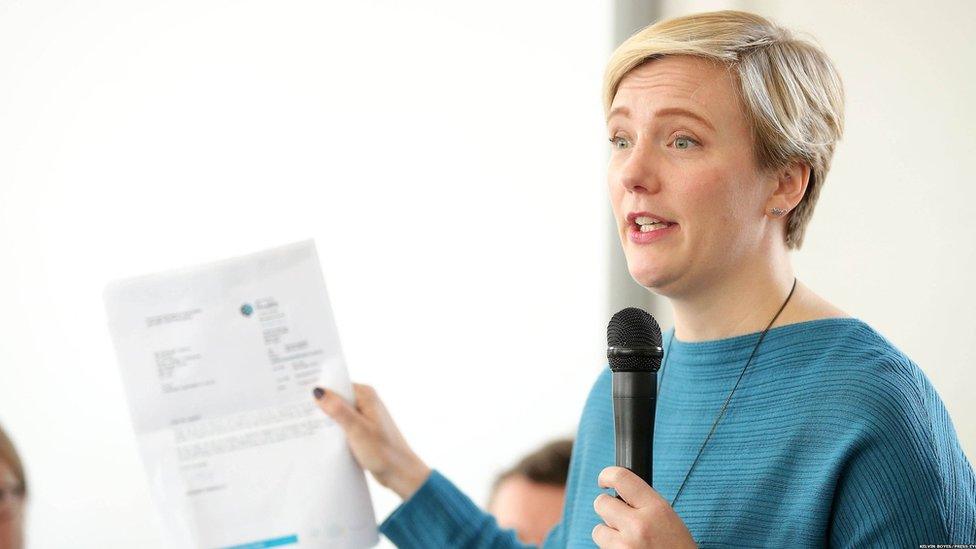Tory-DUP deal: Cash for the kingmakers?
- Published
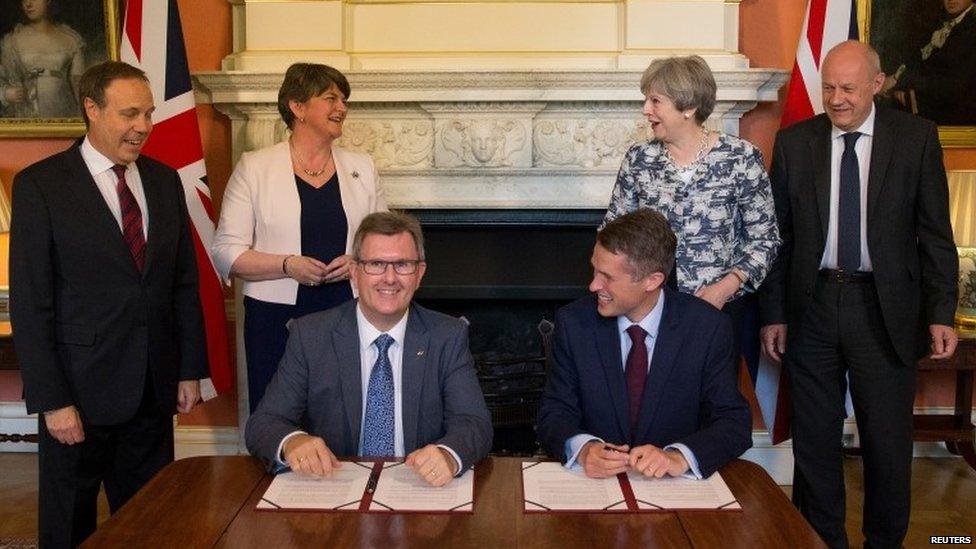
The deal is done - DUP MP Jeffrey Donaldson and Tory Chief Whip Gavin Williamson signed on the dotted line in June
Arguably, the party that had the best result of the 2017 general election were the Democratic Unionists.
Their 10 MPs found themselves at the parliamentary pivot point.
With the Conservatives falling nine seats short of an overall majority, the DUP was in prime position to help them over the line.
Politicians from across the Irish Sea have held the balance of power at Westminster at significant times in the past.
Irish nationalists demanded Home Rule bills in return for supporting the Liberal governments of William Gladstone and HH Asquith.
Power-brokers
When the Irish border was drawn in the early 1920s, 23 Ulster Unionist MPs were influential in parliament and were able to shape the partition scheme.
MPs from Northern Ireland had a critical role in the down-to-the-wire vote of no confidence in James Callaghan's Labour government in 1979.
And in the 1990s, the Ulster Unionist Party shored up John Major when his majority was slimmed down in by-elections and Tory Eurosceptics put him in a tight spot.
But historically, the power-brokers have been nationalist MPs, or the UUP, which in the last century was seen as Northern Ireland's establishment.
This is the first time the Democratic Unionists have been kingmakers.
They have evolved from a party of protest to a party of power.
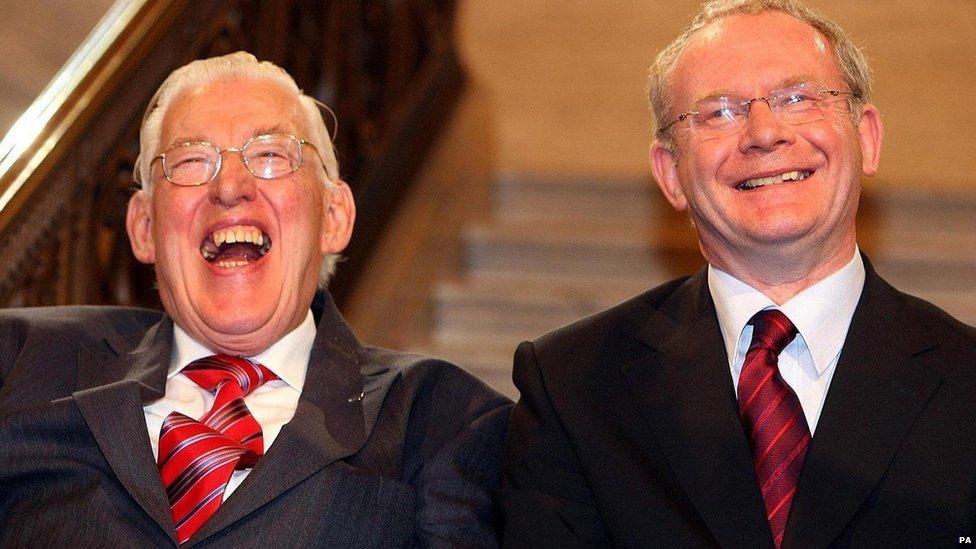
Ian Paisley Sr and Sinn Féin's Martin McGuinness formed an unlikely friendship in the top positions in government
The DUP's founder, the late Rev Ian Paisley, had strong support amongst the Protestant working class, and opposed any notion of compromise during Northern Ireland's Troubles.
But he ended up sharing power with Sinn Féin - after his party had broadened its base and toppled the UUP as Northern Ireland's biggest political force.
'Pragmatic entities'
Dean Godson, director of the centre-right think tank Policy Exchange, says that as the DUP became "less of a theocratic party", they became more appealing potential partners for the Tories.
"Both the modern Conservative Party and the present-day DUP are supremely pragmatic entities," he says.
Under the confidence-and-supply agreement, the government is giving Northern Ireland an extra £1bn of public funding over two years.
The normal budget for Stormont is just under £10bn per year.
Cash for votes?
The new money will go towards infrastructure, health, education and tackling deprivation.
Critics have argued it is a case of "cash-for-votes".
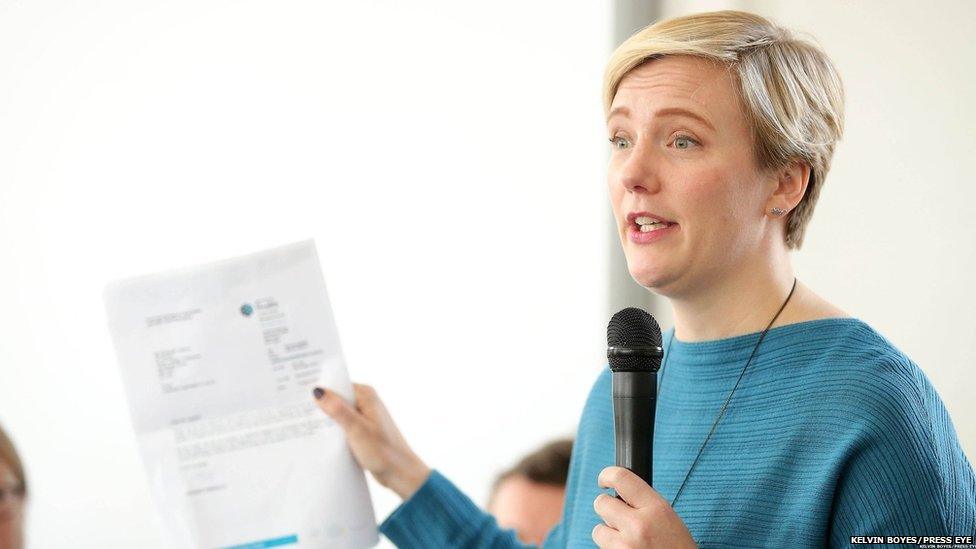
Labour MP Stella Creasy called for women from Northern Ireland to have free abortions on the NHS in England
But the DUP's Westminster leader, Nigel Dodds, argues Northern Ireland is a special case because it suffered economic devastation during the Troubles.
"Investment in infrastructure, for example, has been woefully lacking because the money was diverted basically to keep the place going," he says.
"There is a vast underinvestment in Northern Ireland over many years."
The opposition's other line of attack on the deal has been about the DUP's stance on social issues.
In late June, Labour MP Stella Creasy proposed to change the law to allow women from Northern Ireland to access abortions for free on the NHS in England.
Abortion is much more restricted in Northern Ireland than in the rest of the UK - but every year hundreds of women travel across the Irish Sea to have their pregnancies terminated.
The DUP, and the nationalist SDLP, have opposed any change to the law at Stormont.
When it looked like some Conservatives would back Ms Creasy's move in parliament, the government adopted the measure.
Ms Creasy says she "wouldn't be surprised" if there is a similar parliamentary move to allow gay couples to marry in Northern Ireland.
'Unfair'
The DUP are opposed to same-sex marriage.
But Mr Dodds says uncomplimentary headlines about the party's social conservatism have been unfair.
"People in Northern Ireland have views which are different from people on the mainland of Great Britain, and that has to be recognised," he argues.
Supporters of the DUP deal say stability at Westminster is particularly important as the government negotiates the UK's departure from the EU.
The agreement commits the DUP to supporting the government in votes of confidence, budgetary legislation, and bills on Brexit and national security.
But there may be more talking to do if there are knife-edge votes on other matters.
Mr Dodds says: "All other areas are up for discussion as we go along."
The BBC's Ireland Correspondent Chris Page examines the agreement between the DUP and the Conservative government in The DUP Deal, to be broadcast on BBC Radio 4 on Monday 11 September at 20:00 BST.
- Published26 June 2017
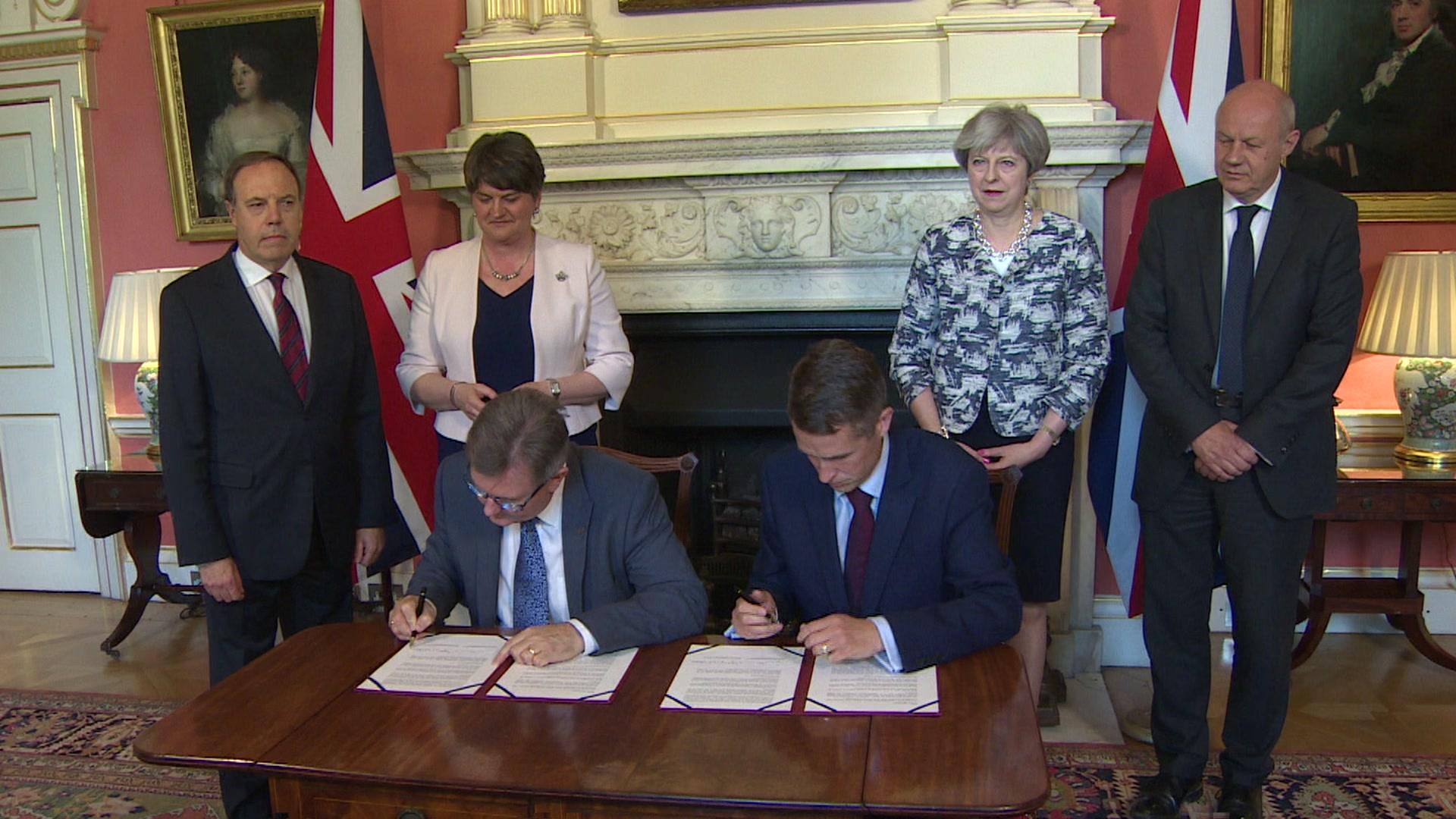
- Published27 June 2017
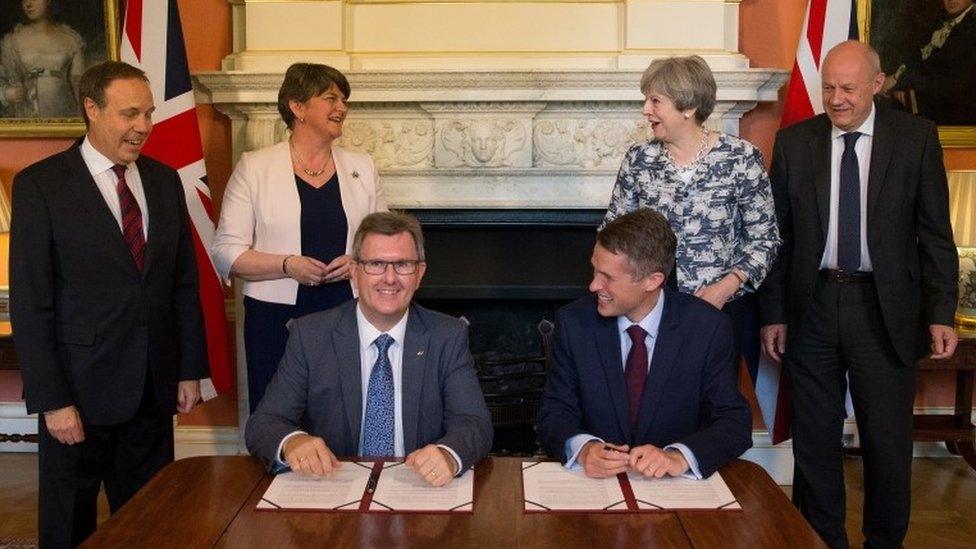
- Published8 August 2017
